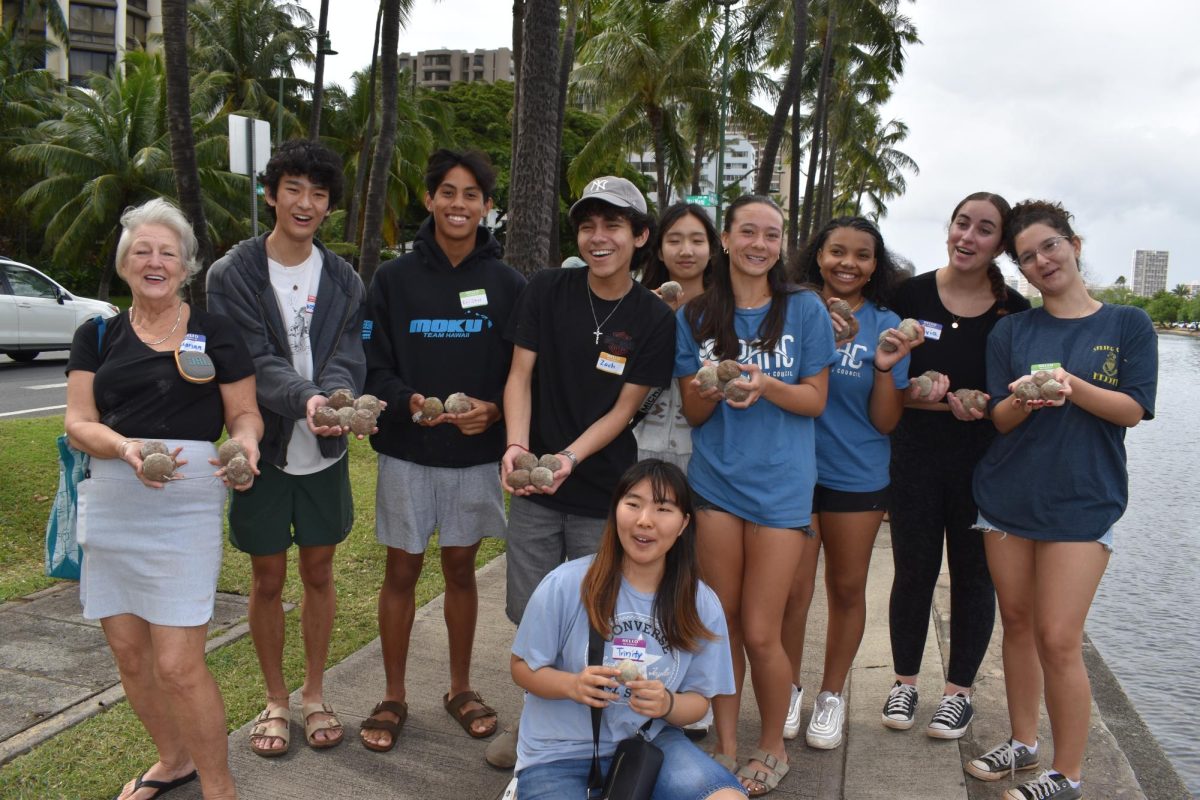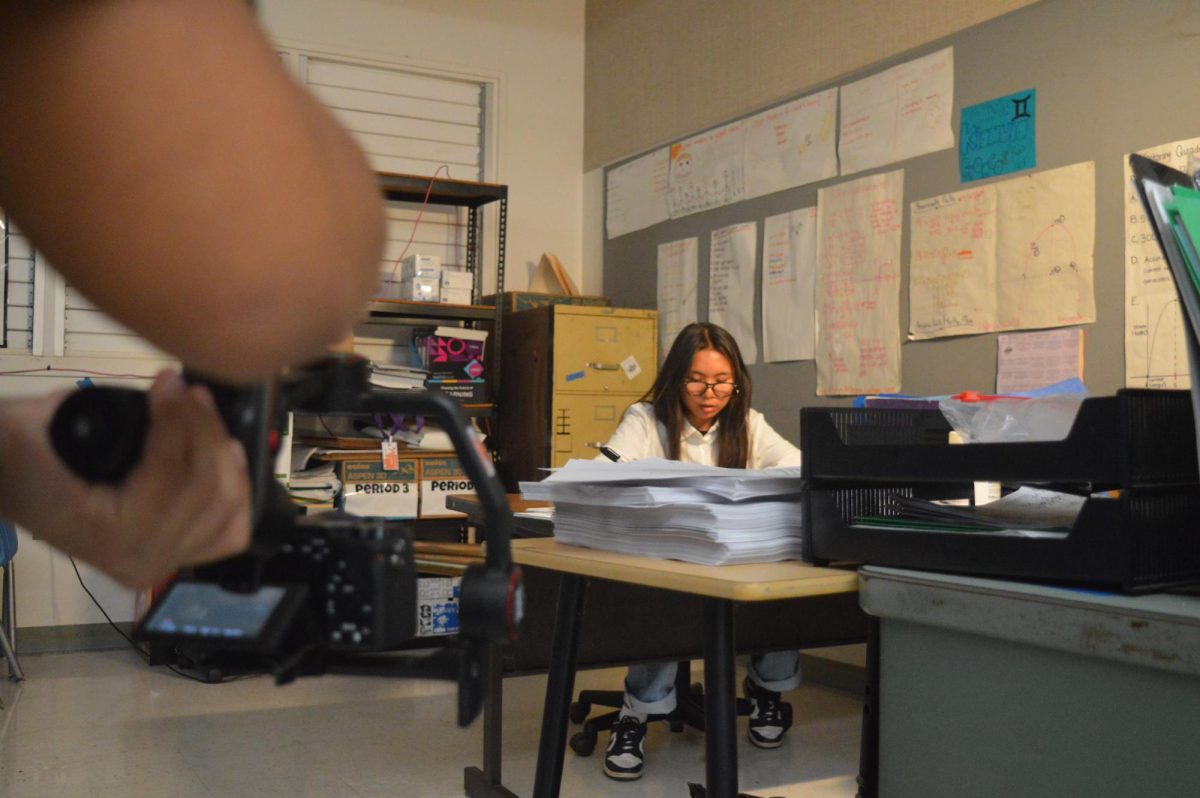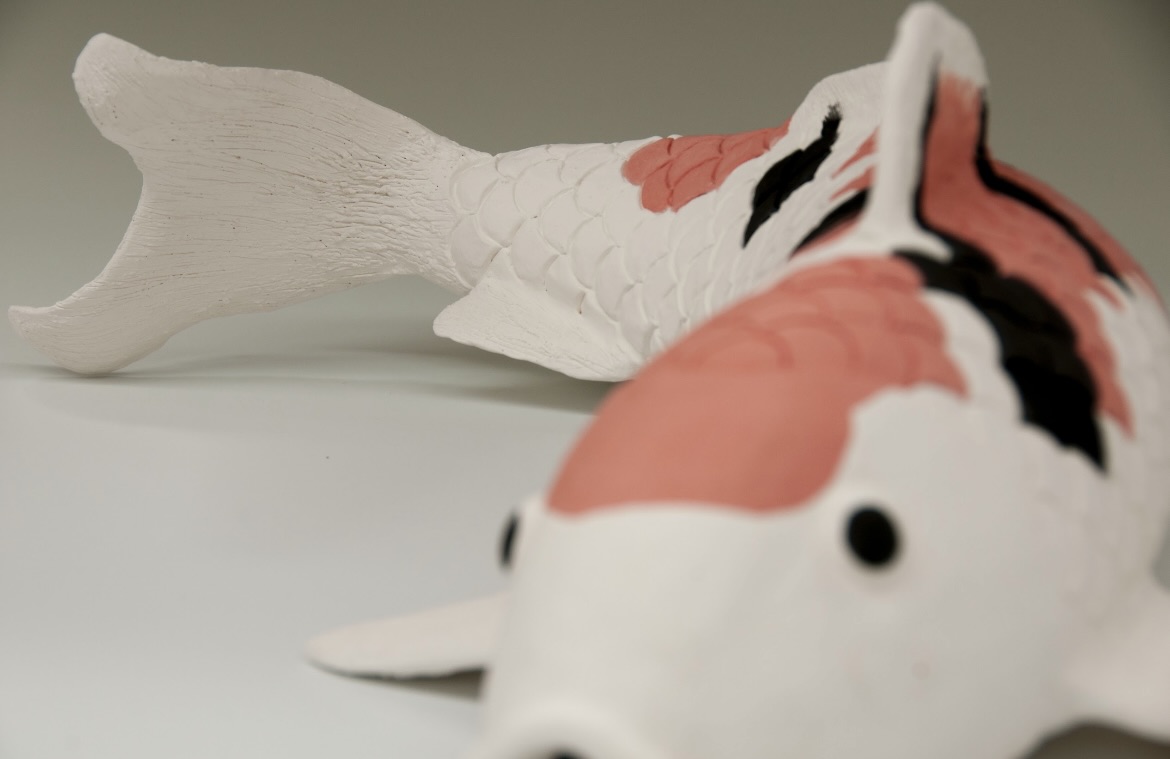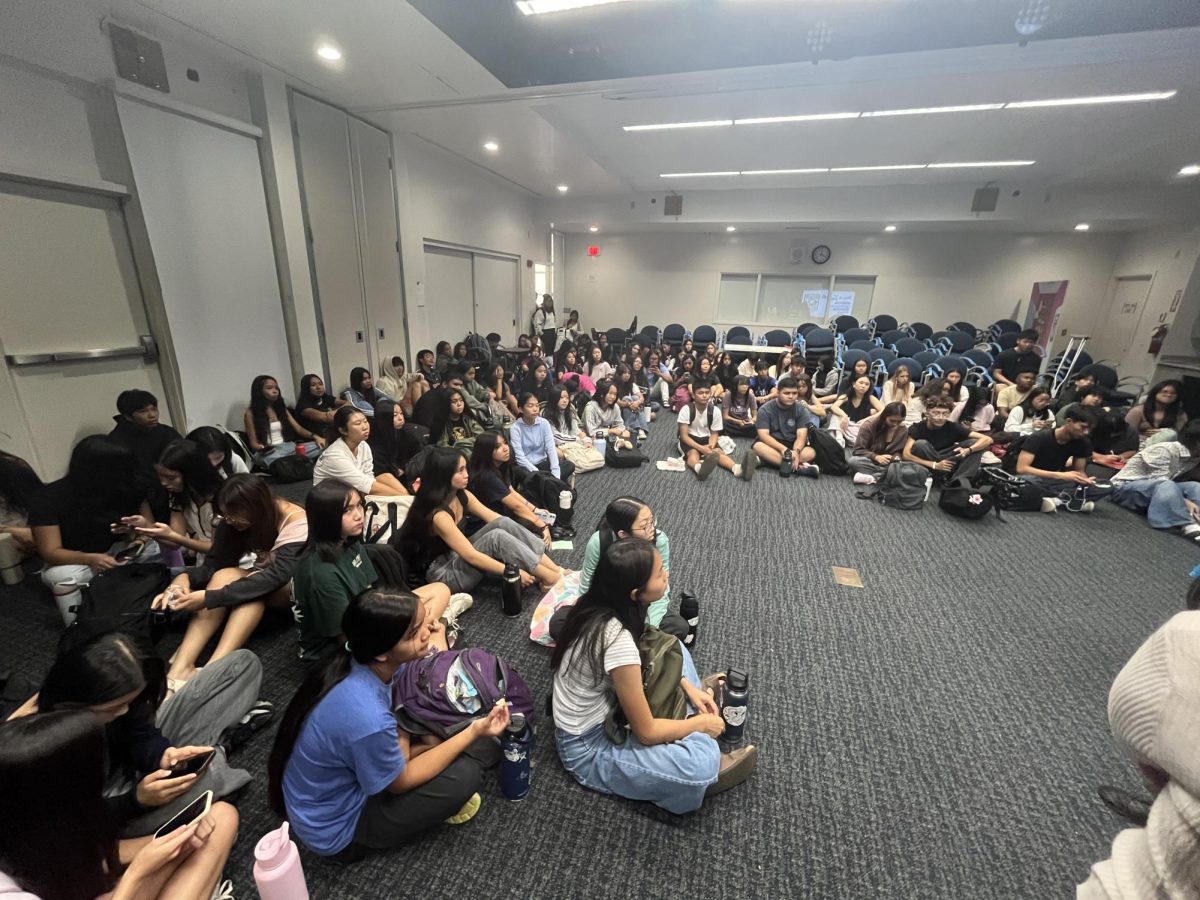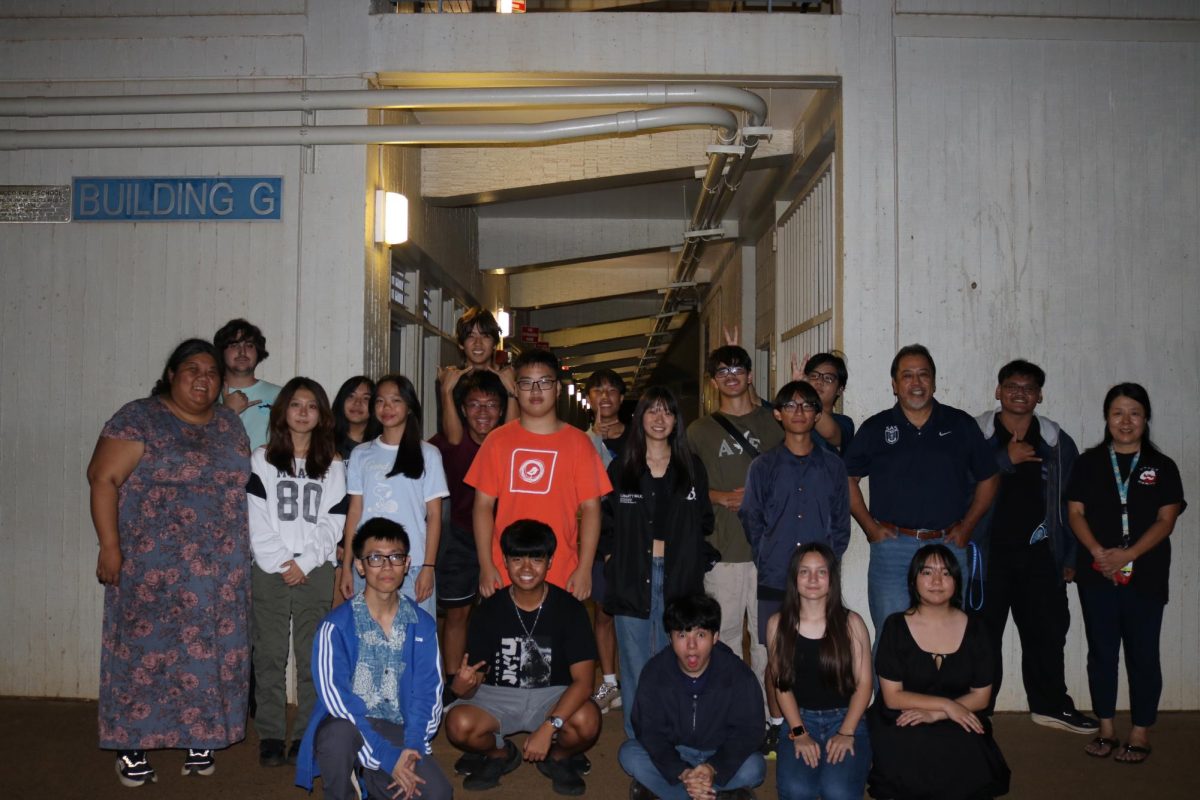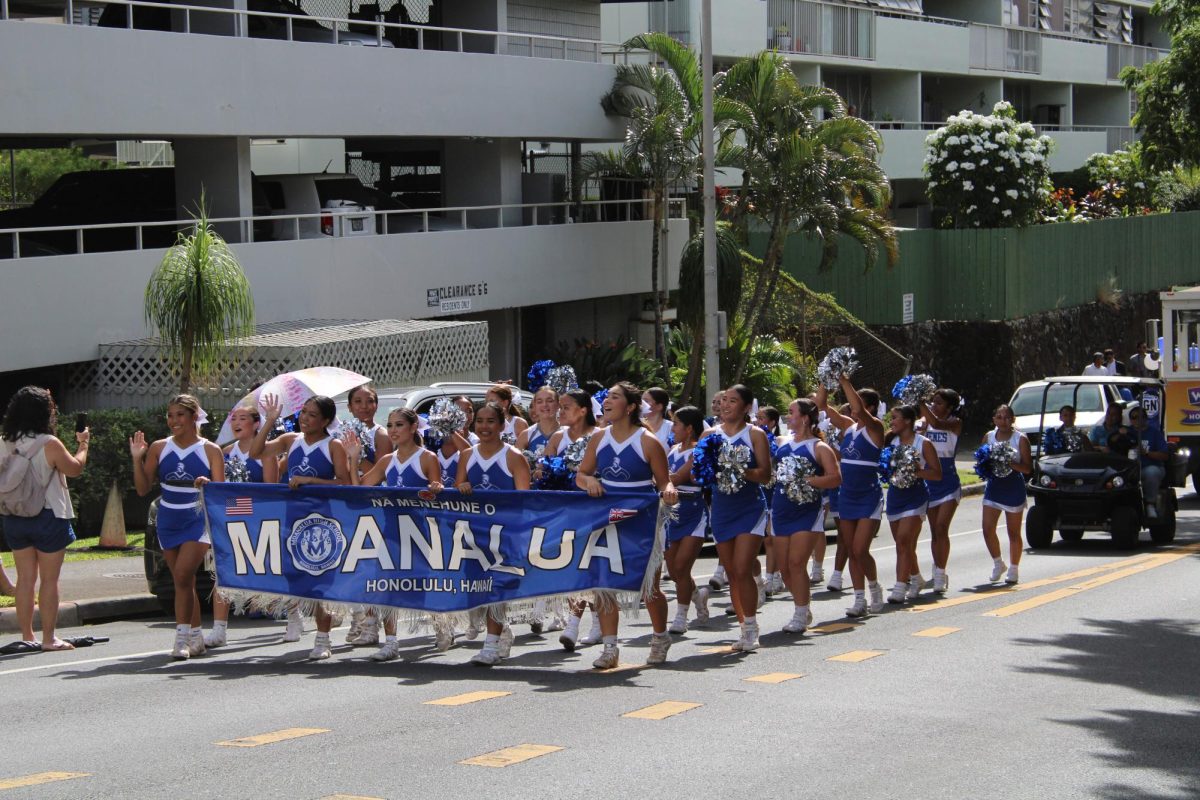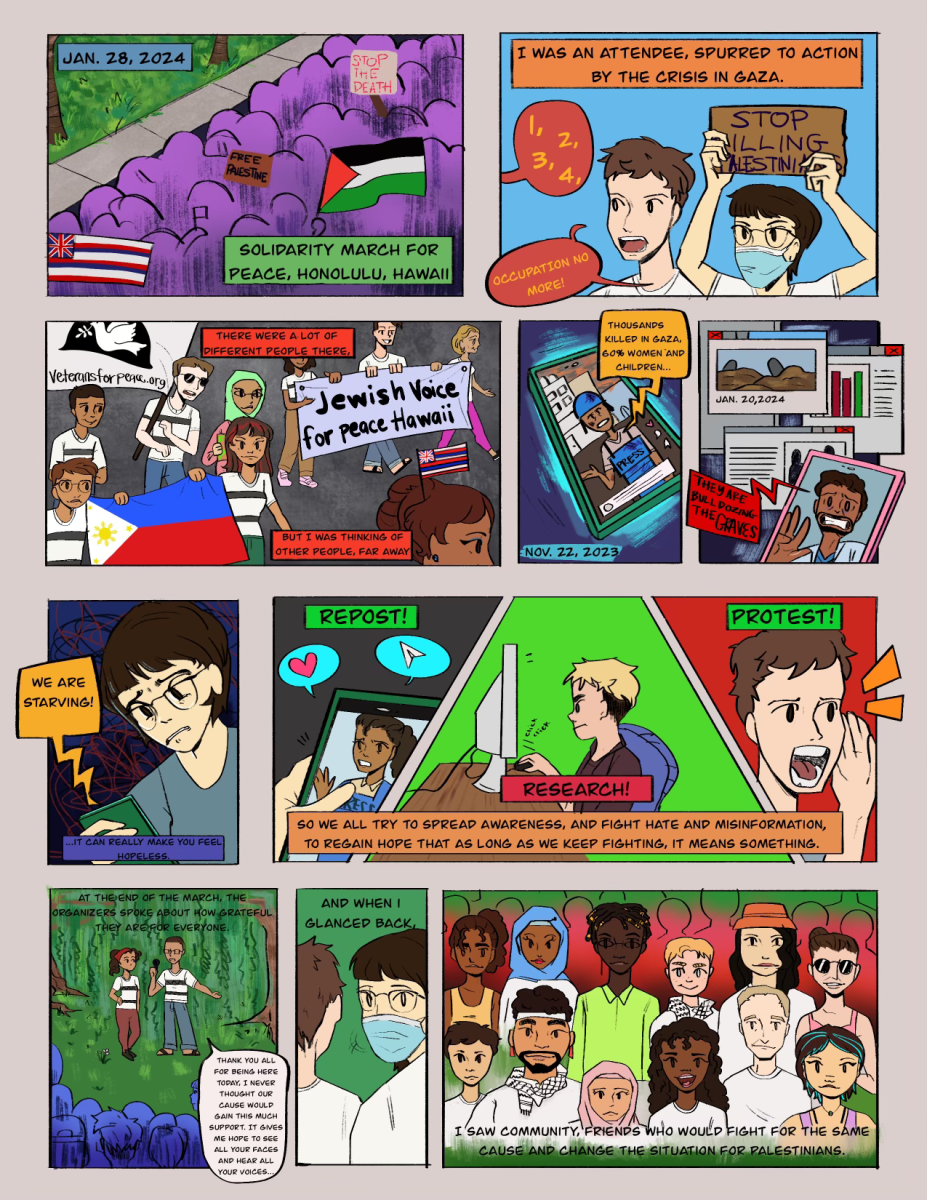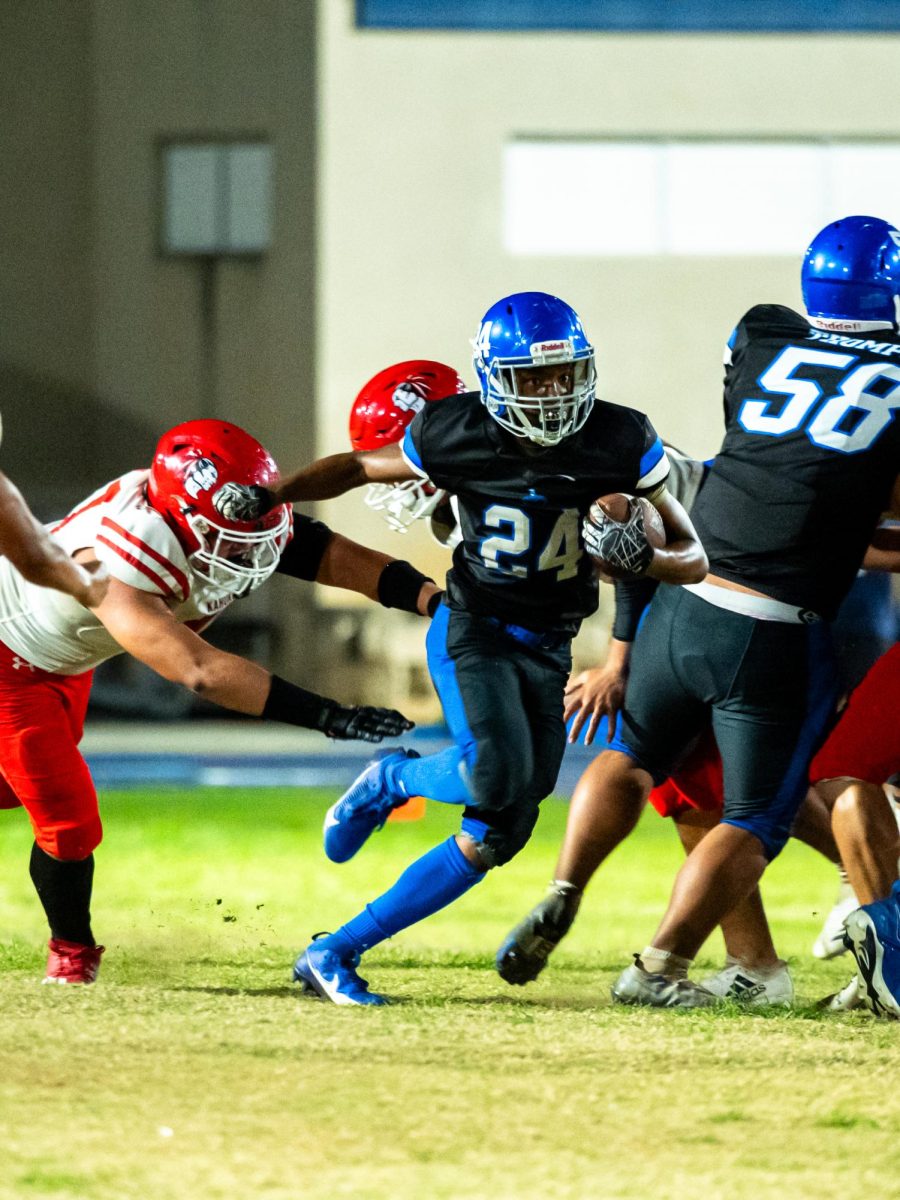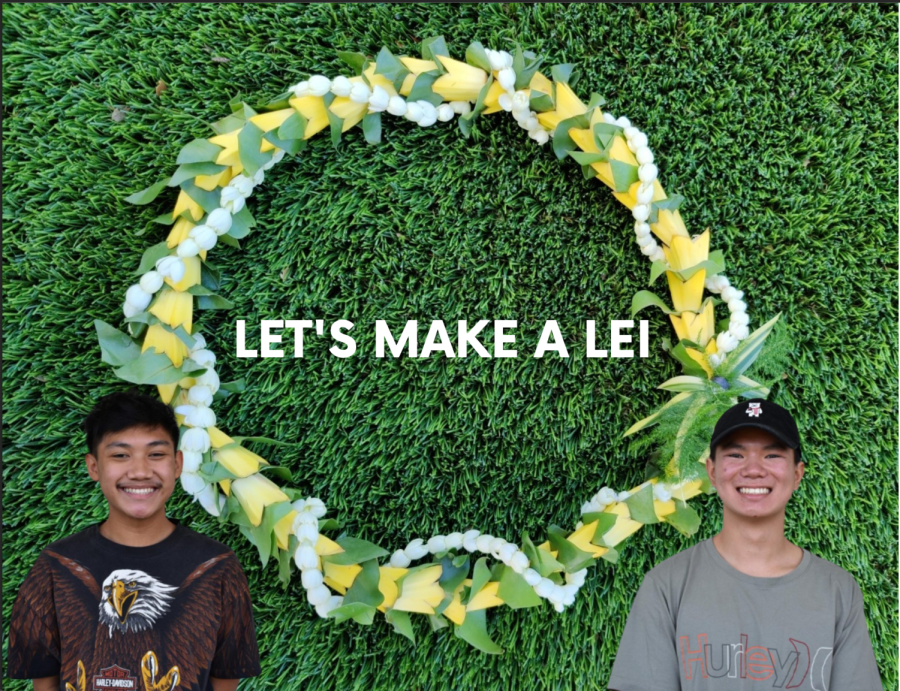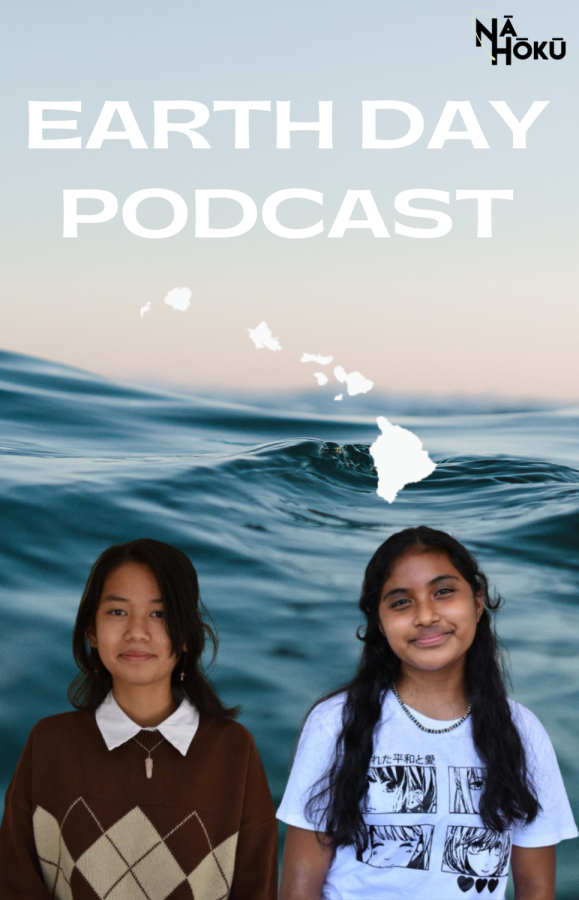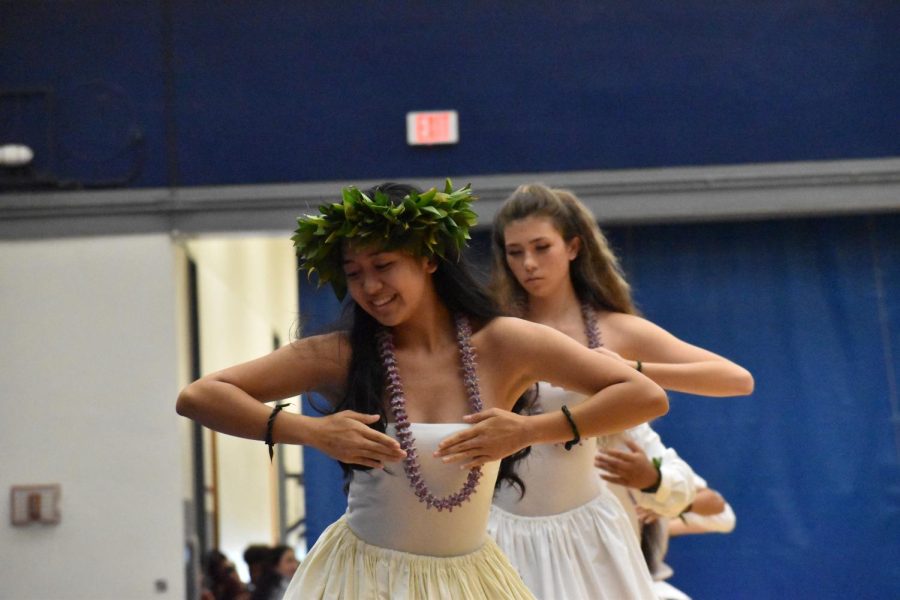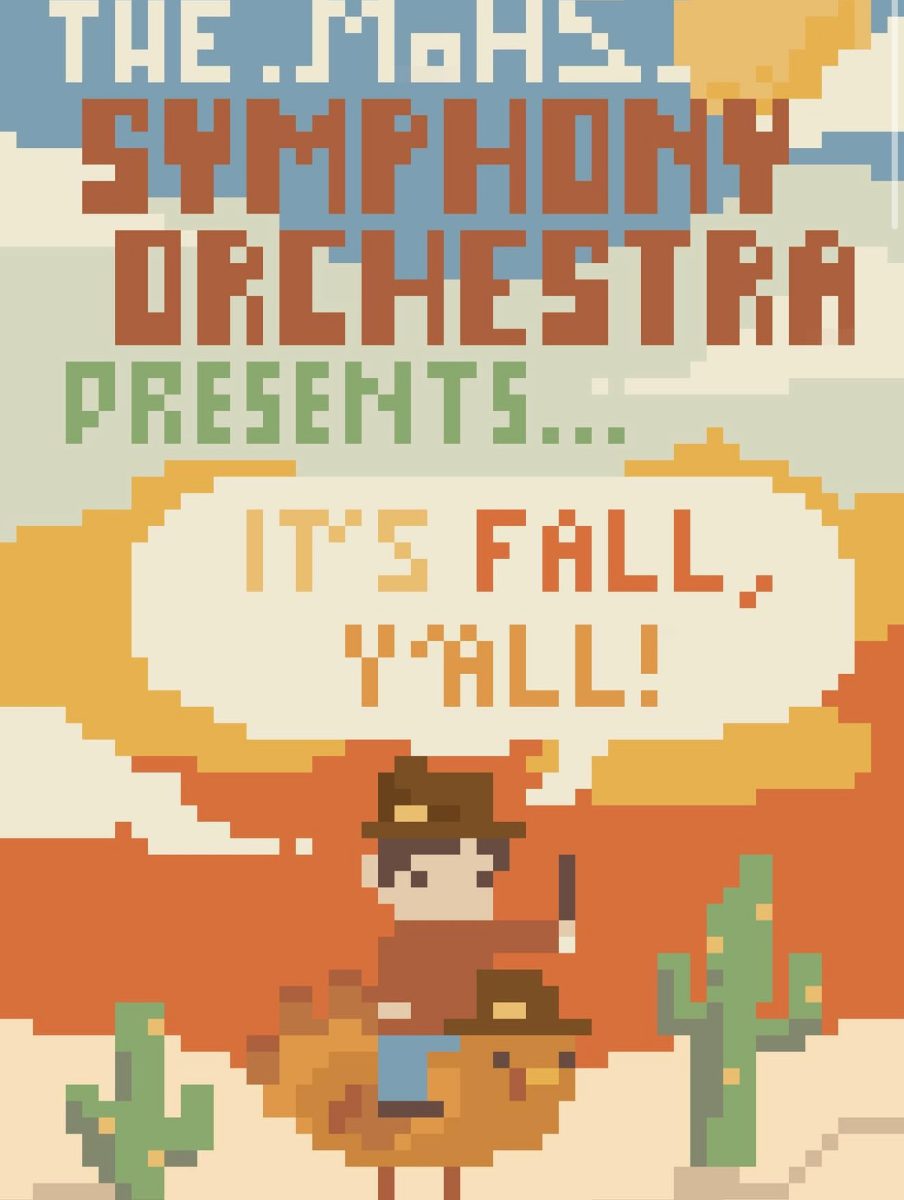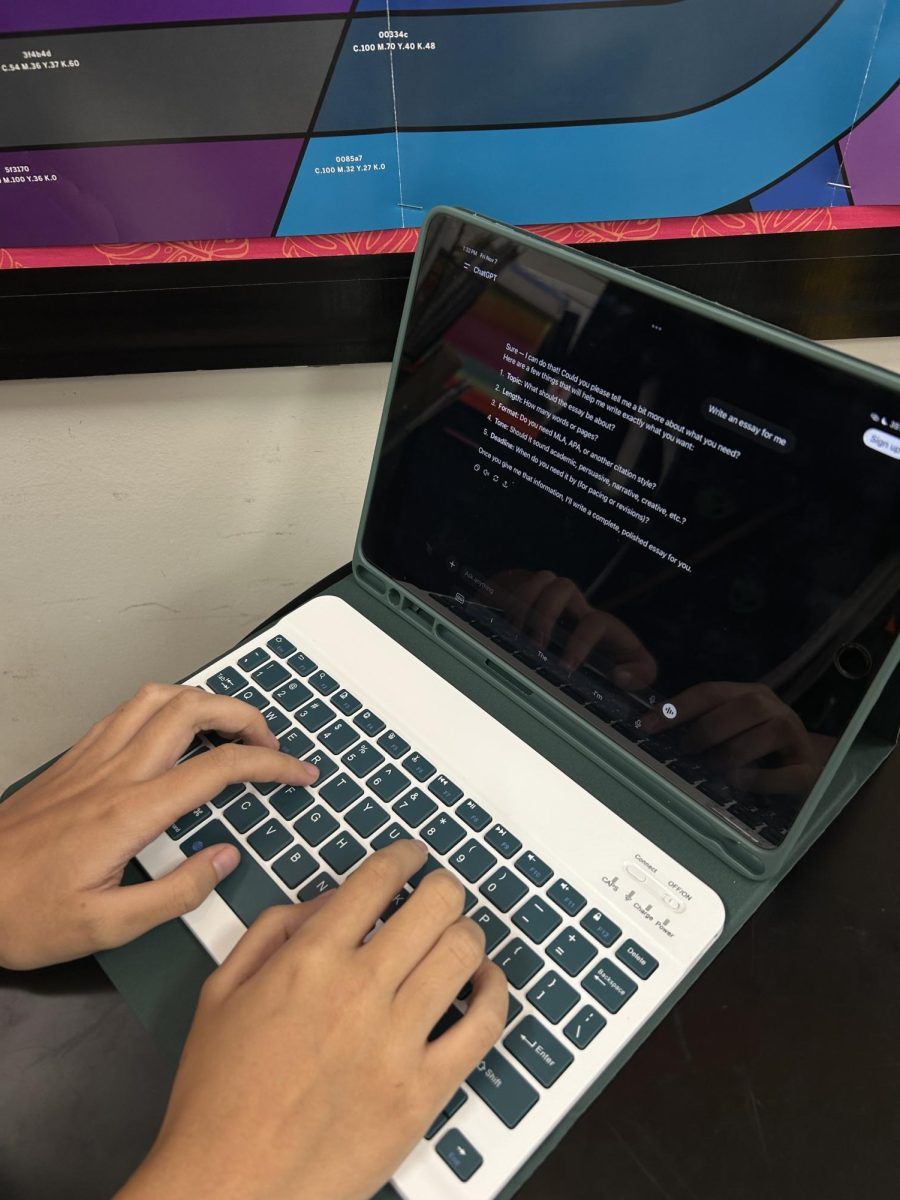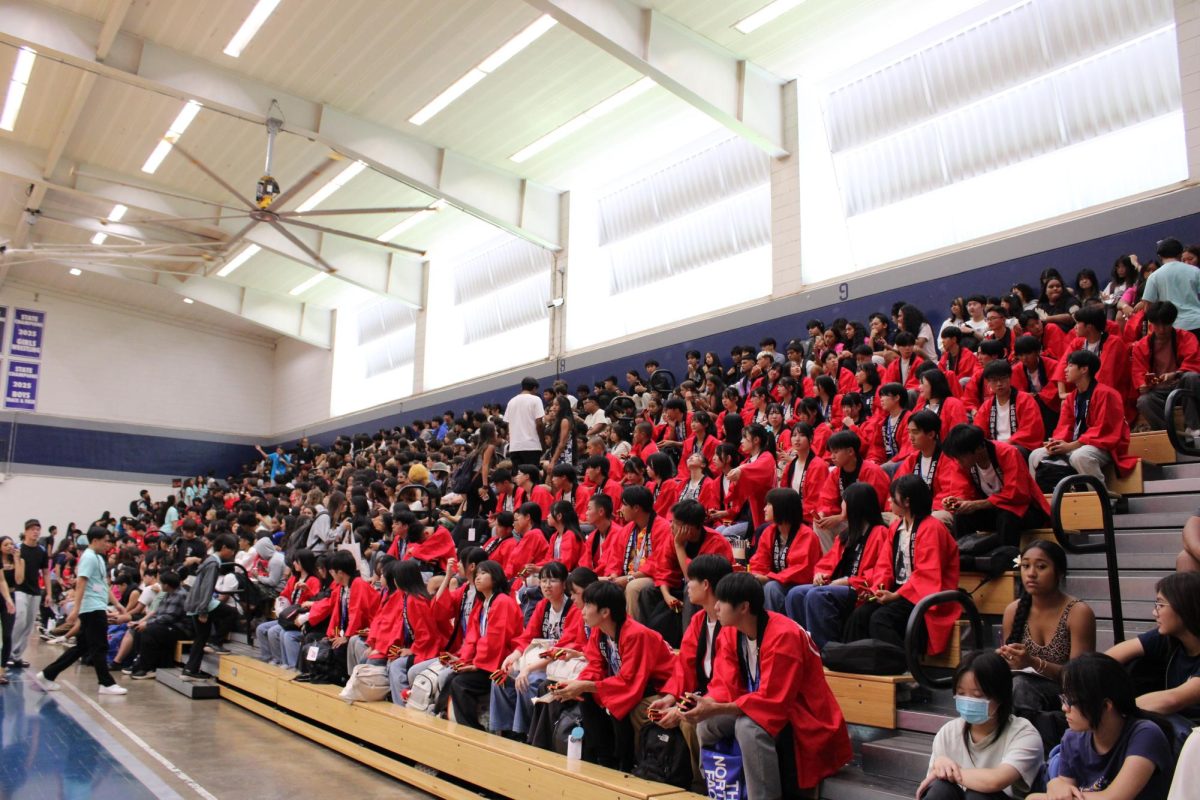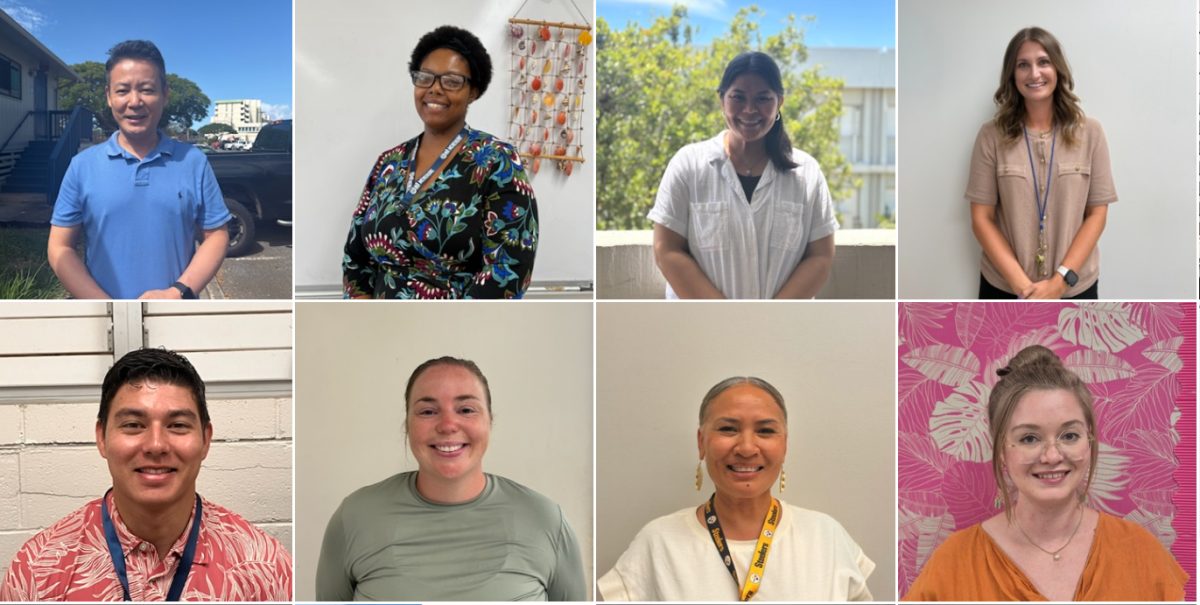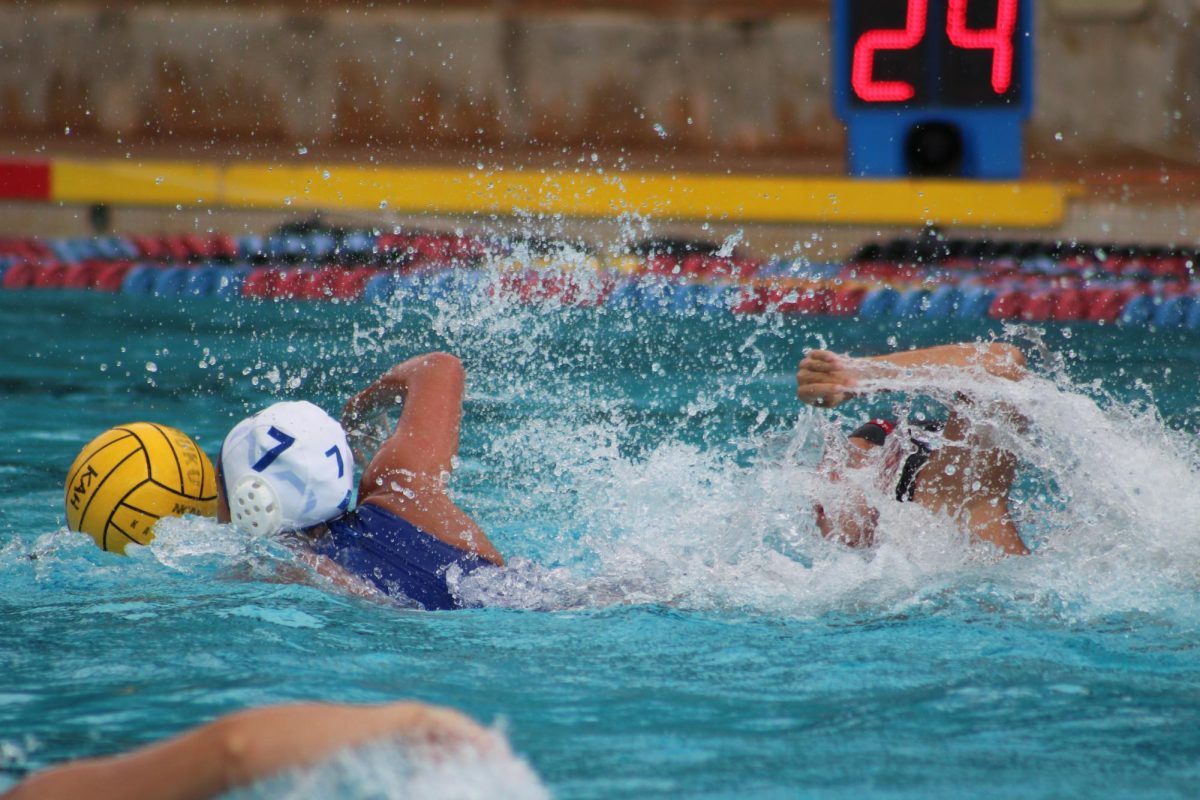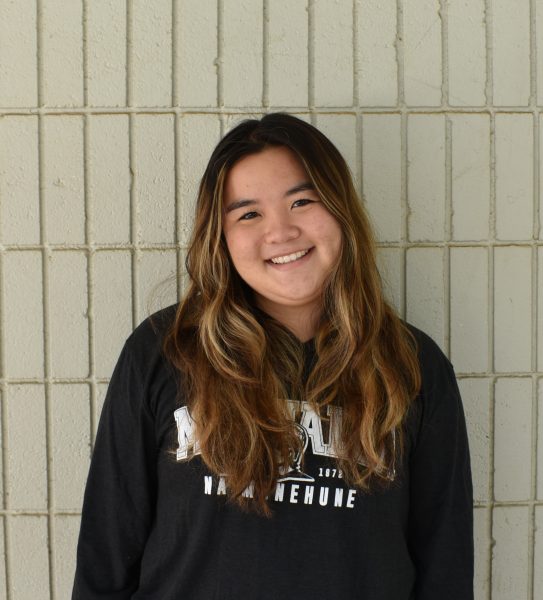Yes, UCLA basketball coach John Wooden’s declaration that “little things make big things happen” is a cliche. But cliches have to come from somewhere.
In the quest to make an impact on the community, members of the Moanalua Pacific Asian Affairs Council (PAAC) made and tossed “Genki Balls” into the Ala Wai Canal Feb. 24 as part of a years-long effort by a local organization to naturally and sustainably clean up the Waikiki waterway that has become notorious for pollution and bacteria.
Senior and PAAC President Sarah Wells said she was excited to be a part of the Waikiki Community Center’s monthly Genki (“healthy”) Ball project.
“I learned about it through our club adviser (social studies teacher Belinda Toyama) and thought it would be fun,” she said.
Club Vice President and senior Olivia Treme said the club was looking for community service projects that aligned with their goals.
“We did research and learned that this project helped with water and marine life health,” Treme said. “We saw it as a good opportunity to get involved and do something locally.”
Junior Zachary Tovar explained that the PAAC supports initiatives that already exist at the United Nations, an international organization founded in 1945 that strives to increase global economic and political cooperation as well as maintain peace and security. One UN program focuses on the environment.
“Our [club’s] principles align with the UN’s Sustainable Development Goals,” Tovar said. “Specifically since we are in the Pacific, we want to do things to support this region.” (The Hawaii PAAC governing agency has Hawaii Sustainable Development Goals for the Pacific region.)
Workers from the Waikiki Community Center spread out several workstations for the students and other community volunteers. The helpers first sifted soil into a large container to create a smooth, even medium. They then added rice bran for aeration before pouring a mixture of “effective microorganisms,” molasses and water into the dry ingredients to create a kind of firm mud. They then formed them into smooth balls. Collectively, the group formed nearly 200 Genki Balls.
The balls will be stored in a ventilated wood chest for anywhere from two weeks to six months. This will allow the microorganisms to begin to grow and develop into helpful sludge-eating bacteria.
“Prior to 1928, [the Ala Wai Canal] had a healthy ecosystem, with great water flow,” Waikiki Community Center Director of Programs Merle O’Neil said. Then, as urbanization in Honolulu grew, “literally all the pollutants from the upper watershed (from Nuuanu, Palolo and Kaimuki) flowed into the Ala Wai. It changed the quality of the water.”
O’Neil said that when the WCC began helping with the Genki Ball project in 2019, the Ala Wai had about 23 inches of sludge at the bottom. Today, after repeated additions of microbial balls, the sludge measures seven inches as of last November.
The United States Environmental Protection Agency gave approval to use microbes in the water to see if this strategy of pollution mitigation works, and the state will report its findings in 2025.
While making the balls, Tovar and Treme realized that they were applying what they learned in school. The microorganisms developed in the condensed environment of the dirt in the warmth of the wooden storage boxes.
“[The fermentation process] is anaerobic respiration,” Tovar and Treme remarked to each other while pressing the mud into a yogurt cup. “Thanks, Mr. Kohara,” they laughed in unison, referring to their AP Biology teacher.
After learning about the effect of just a few years of volunteers adding Genki Balls into the Ala Wai, it was time for the club to walk across the street from the center to stand on the edge of the canal and toss in their organic offerings.
Toyama, who said she had made Genki Balls previously, said “the best part is the throwing.”
She explained that the goal of PAAC is “to teach students to view issues from the perspective of many stakeholders. They have to work together to solve real-world problems.”
Senior Hudson-Clark Kobayashi said he enjoyed meeting the other people who had come out to volunteer, learning both about their lives and how the Genki Balls helped the Ala Wai.
“It was fun meeting other older adults,” he said, adding that he “found it really interesting that the Genki Balls were making a difference.”

